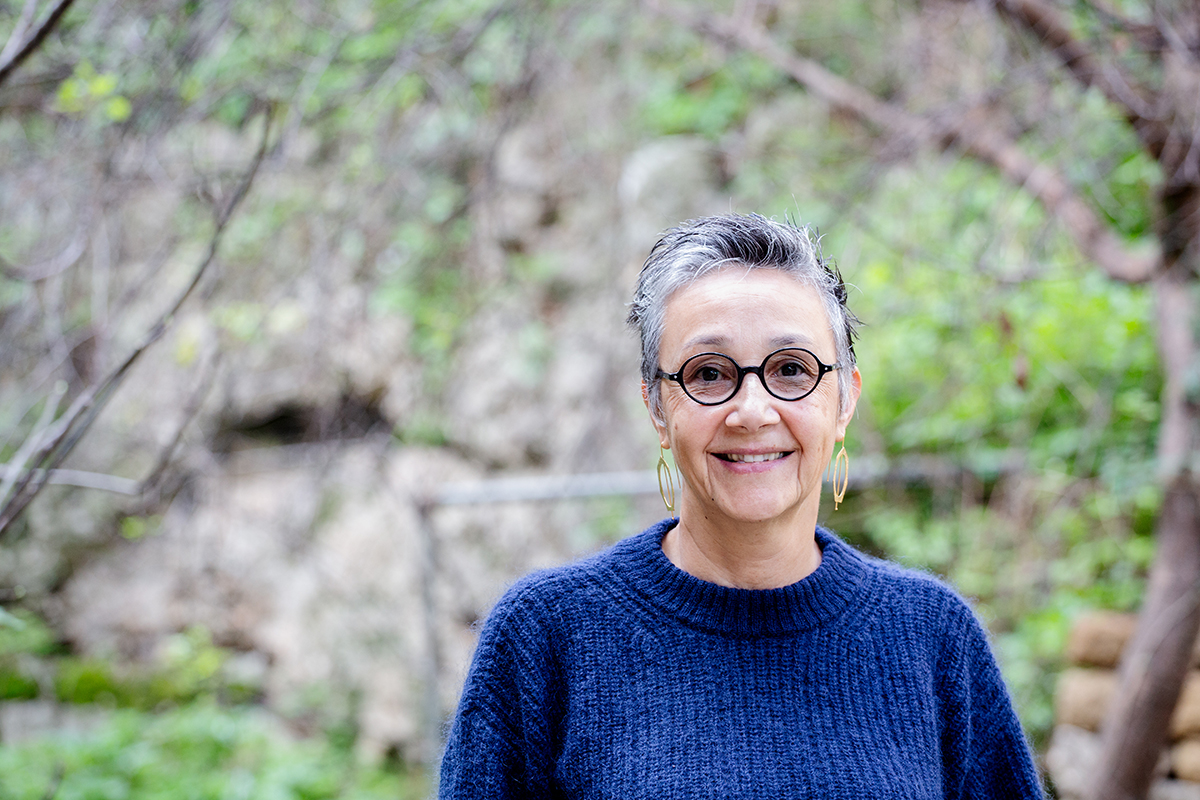In Lebanon, a researcher is redefining the concept of empowerment and sustainability
Date:
Najat A. Saliba, 57, is the co- founder and executive director of Environment Academy (EA), an environmental movement led by the American University Beirut (AUB) in collaboration with communities across the country aiming to find transformative and just solutions to environmental breakdown in Lebanon. Saliba has been working as a professor and researcher in analytical and atmospheric chemistry and was the former Director of the Nature Conservation Center at AUB. She and the team at EA discuss what it is like to work on climate action with communities in times of unprecedented national crisis.

For the past twenty years, Saliba has published scientific studies to mitigate environmental crisis.
“I noticed that these recommendations were heard internationally, but hardly ever in Lebanon. This is how the Environment Academy came to life; it started from deep frustration with conventional development models and science being silenced. We need to be part of the solution.”
In a recent study she has published “Identifying urban air pollution hot-spots by dispersion modeling when data are scarce: application to diesel generators in Beirut, Lebanon,” Saliba notes that the primary pollutant of the atmosphere in Lebanon is diesel generators. “Science has established that air pollution kills over 7 million people a year. It is a silent killer. It is also linked to morbidities, like lung cancer, respiratory diseases, cardiovascular diseases, obesity, low birth rate, and even the spread of COVID-19. However, when you think about it, air pollution causes more damage than expected.”
The co-founder and managing director of Environment Academy Sammy Kayed seconds Saliba and explains how EA is trying to bring renewed definition to the concept of empowerment and sustainability while lifting the struggles of community members up and creating structures to bring them to decision-making tables. Kayed gives an example, “in Barja - a town in the Chouf District of the Mount Lebanon Governorate - you will find the second largest national powerplant, huge quarries, and many private generators which have contaminated the air for decades. The community has been studying ways out of this mess with an atmospheric scientist. To some this local health and environmental crisis seems untouchable but the women-led community refuses to give up. They are working with the area’s powerful figures to turn a historic open solid waste dump site into a public green space, away from pollution corridors, where the community can find an escape from pollution even if for a moment.” He explains that the community will be mobilized to fight for decent air quality and the stewardship of the green space in Barja through an activism campaign.
Saliba confirms that the success of the Environment Academy is built upon the passionate work of 30 diaspora experts from around the world and over 100 team members in about 20 communities working to reclaim their most basic environmental rights. She notes that the local empowerment is palpable. “For example, right here, Justine Bou Rjeily, our field director, started out as a member of the EA community team in Fanar, Matn, 11.9km away from Beirut. During her persistent activism in her home community, she went from being denied meetings with power holders in the community to being unofficially bestowed with the title of environmental police by local public authorities.”
Bou Rjeily believes “the support provided by the Environment Academy made my community believe that as citizens, we actually do have the power to make change happen.”
Saliba also strongly believes that climate change mitigation, however small, starts locally.
“It’s proven that green spaces can absorb air pollution. I realize that we cannot remove the diesel generators now, but what we can do is create a culture of green spaces, especially in villages.”
Kayed explains that Lebanon is a recipient of climate change not a major contributor to it and that adaptation to its disastrous impacts is not a choice. He has faith in people’s ability to find unconventional ways to respond to climate change’s impacts. “An elderly man we met in the North of Lebanon has no idea about the latest UN reports on climate change, yet he speaks of its difficulties and ways to protect his community against it in the most emotionally relatable and captivating ways. These are the stories we must tell. These are the people that can inspire transformational change.”
Saliba and the EA team emphasize the fundamental leadership role of local communities in the fight for a fairer and more sustainable world. “A decentralized model of community born environmental governance is key right now.”